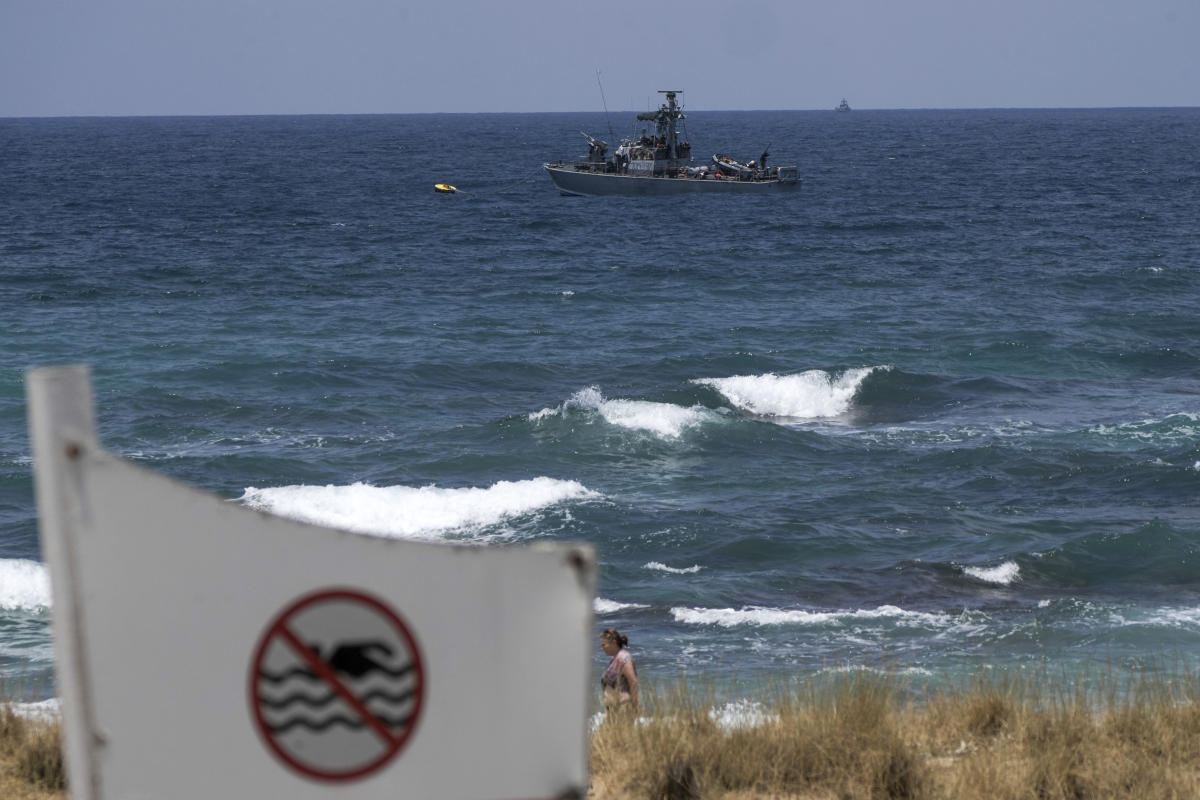
JERUSALEM (AP) — Israel’s new prime minister paid an unannounced visit to the border with Lebanon on Tuesday, threatening to unleash a harsh military response to what he described as “unacceptable” aggression by the Lebanese militant Hezbollah group.
The visit came at a time of heightened tensions with Hezbollah, a heavily armed group that fought Israel during a monthlong war in 2006. On Monday, Israel said it intercepted a drone that crossed from Lebanese territory, and last week, Hezbollah’s leader threatened Israel with military escalation if a dispute over a maritime border is not resolved in Lebanon’s favor.
“Israel is prepared to act against any threat,” said Yair Lapid, who took over Israel’s caretaker prime minister on July 1. “We have no interest in escalation but Hezbollah’s aggression is unacceptable and is liable to lead the entire region into an unnecessary escalation.”
He was joined by Israeli Defense Minister Benny Gantz and top military officials as he toured the area.
Israel considers Hezbollah its most serious immediate threat, estimating the Iranian-backed group has some 150,000 rockets and missiles aimed at Israel.
Earlier this month, the Israeli military said it shot down three unmanned aircraft launched by Hezbollah heading toward an area where an Israeli gas platform was recently installed in the Mediterranean Sea. Hezbollah confirmed it had launched three unarmed drones toward the disputed maritime area.
The launch of the drones appeared to be an attempt by Hezbollah to influence U.S.-brokered negotiations between Israel and Lebanon over their maritime border, an area that is rich in natural gas.
In a speech last week, Hezbollah’s leader, said Lebanon should be able to extract oil and gas in Lebanese waters and warned that sending the drones was “a modest beginning to where the situation could be heading.”
Lebanon claims the Karish gas field is disputed territory, while Israel says it lies within its internationally recognized economic waters. The United States has been mediating indirect negotiations since October 2020.
Israel and Lebanon, which have been officially at war since Israel’s creation in 1948, both claim some 860 square kilometers (330 square miles) of the Mediterranean Sea. Lebanon hopes to exploit offshore gas reserves as it grapples with the worst economic crisis in its modern history.




